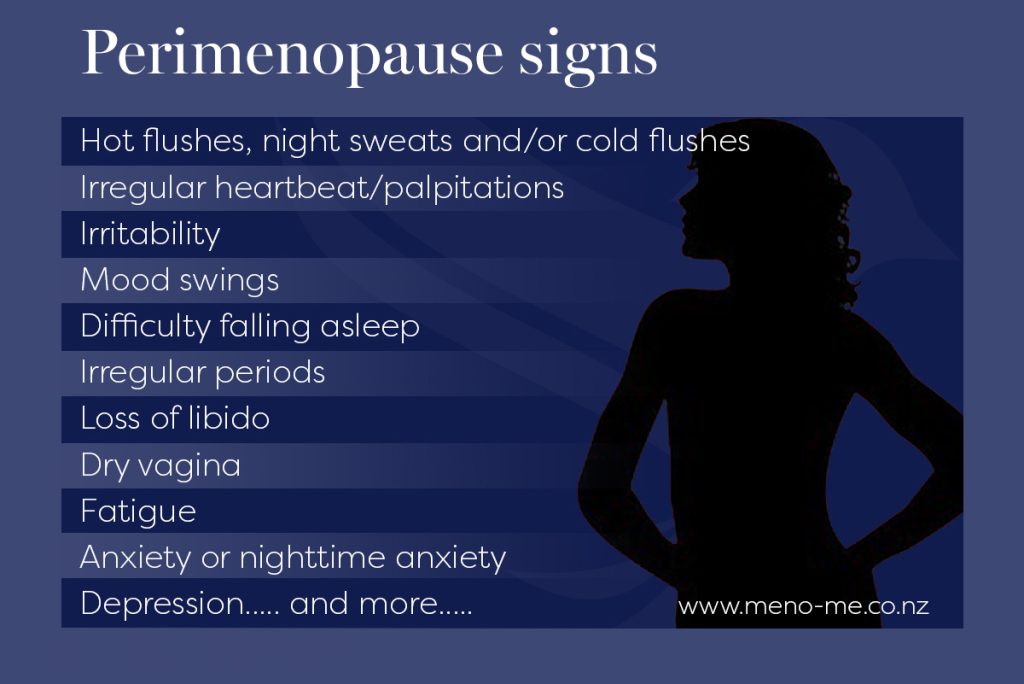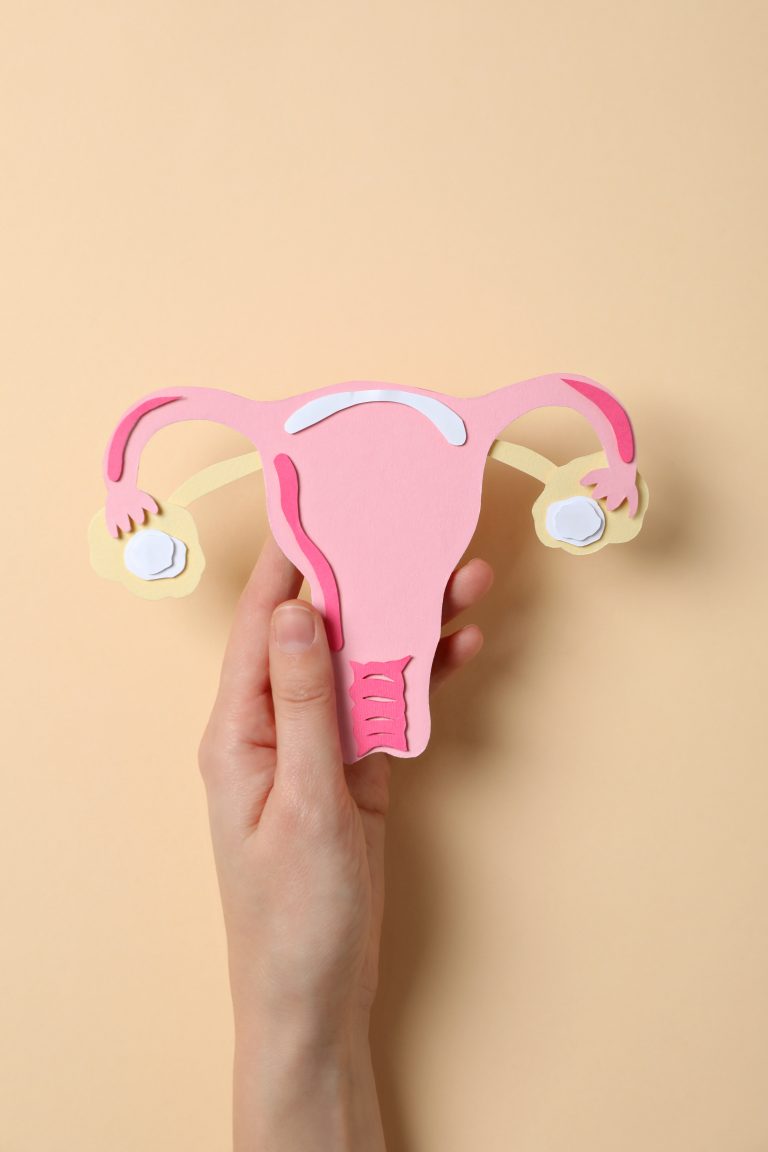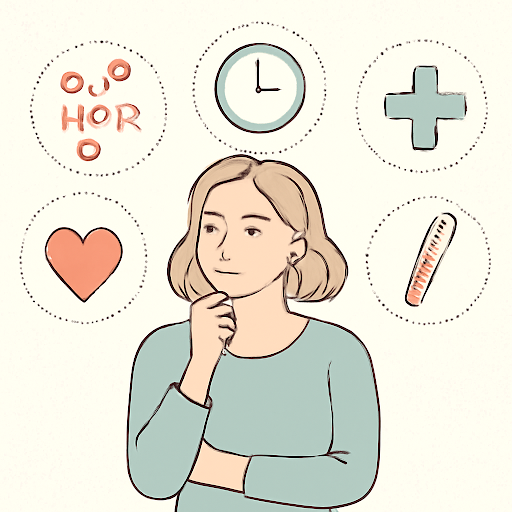Perimenopause: Answering the Top 10 Googled Questions
- Perimenopause is a gradual transition, not a sudden change, typically beginning in your 40s.
- Early onset is possible and often linked to genetics and lifestyle
- Lifestyle modifications can significantly improve symptoms like weight gain.
What exactly is perimenopause, and when does it start?
Perimenopause means “around menopause” and it is your body’s natural transition towards the end of your reproductive years. Think of it as a dimmer switch rather than an off button your hormone levels gradually fluctuate over time.
Most women enter perimenopause in their 40s, though it can begin as early as the mid-30s or as late as the 50s. The average starting age is around 47, but genetics, lifestyle, and overall health play significant roles.
What symptoms should I expect (beyond hot flashes)?
Perimenopause affects your entire body, not just your reproductive system. Common symptoms include irregular periods, mood swings, brain fog, sleep disturbances, vaginal dryness, and changes in libido.
One might also experience breast tenderness, headaches, joint aches, and changes in skin and hair texture. The intensity and combination of symptoms vary greatly from person to person. Perimenopause is more than hot flashes, it is a whole-body transition with diverse symptoms.

How long does perimenopause last?
Most women experience perimenopause for 3 to 4 years on an average, though it can range from a few months to a full decade. The duration depends on factors like genetics, overall health, and lifestyle choices.
Late perimenopause (when periods are 60+ days apart) typically signals you’re within 1-2 years of menopause. Some women have a gradual transition while others experience more abrupt changes. There is no standard timeline, but tracking your symptoms helps you understand your unique journey.
Can it start early?
Yes, some women begin experiencing perimenopause in their late 30s, though it’s less common. Early perimenopause can be influenced by genetics, smoking, stress levels, and certain medical conditions. If your previous generations experienced early menopause, you’re more likely to as well. Lifestyle factors like smoking, high stress, and poor nutrition can also trigger earlier hormonal changes. Family history and lifestyle factors influence timing.
Will my periods completely stop suddenly?
For most people, periods gradually become irregular rather than stopping abruptly. You might experience longer or shorter cycles, heavier or lighter bleeding, or skip periods entirely for months before they resume.
Only about 10% of people stop menstruating suddenly without any irregular pattern. The majority experience years of menstrual changes as hormone levels fluctuate unpredictably. Gradual changes are normal, but any concerning bleeding patterns warrant medical attention.

Is moodiness normal or should I be concerned?
Mood changes during perimenopause are completely normal due to fluctuating hormone levels. However, 98% of perimenopausal women experience mood symptoms, and 16% report thoughts of self-harm, highlighting the importance of monitoring mental health.
Mild mood swings, irritability, and anxiety are expected, but severe depression or persistent emotional changes require professional support. The hormonal fluctuations can intensify existing mental health conditions.
What are the natural ways to cope with the symptoms?
Lifestyle modifications can significantly improve perimenopause symptoms. Regular exercise, stress management through yoga or meditation, and maintaining a consistent sleep schedule form the foundation of natural symptom management.
Dietary changes like increasing omega-3 fatty acids, reducing caffeine and alcohol, and incorporating phytoestrogen-rich foods (soy, flaxseed) may help. Some women find relief with black cohosh, evening primrose oil, or magnesium supplements.
Can perimenopause affect my weight?
Yes, perimenopause commonly causes weight gain, particularly around the midsection. Declining estrogen levels slow your metabolism and change how your body stores fat, often leading to “meno belly” even without dietary changes.
The average weight gain is 5-10 pounds, but this varies significantly among women. Factors like decreased physical activity, stress eating, poor sleep, and muscle loss all contribute to weight changes. Weight gain isn’t inevitable, but it requires more intentional effort to maintain your previous weight.Dietary changes like increasing omega-3 fatty acids, reducing caffeine and alcohol, and incorporating phytoestrogen-rich foods (soy, flaxseed) may help. Some women find relief with black cohosh, evening primrose oil, or magnesium supplements.

Should I see a doctor, and what tests might they run?
You should consult a healthcare provider when perimenopause symptoms interfere with your daily life or cause concern. While there’s no single test to diagnose perimenopause, doctors evaluate your symptoms, medical history, and overall health.
Blood tests may check FSH (follicle-stimulating hormone) levels, especially if you’re under 45, but hormone levels fluctuate unpredictably during perimenopause. Your doctor might also test thyroid function and rule out other conditions causing similar symptoms. Diagnosis relies more on symptom patterns than blood tests—don’t wait to seek help if you’re struggling.
Final Thoughts
Perimenopause is a natural and unique journey for each, marked by shifting hormones and changing symptoms. Understanding what to expect and knowing when to seek support can make this transition smoother and less overwhelming. By tracking your symptoms, embracing healthy lifestyle habits, and consulting healthcare professionals when needed, you can navigate perimenopause with confidence and care. Remember, you’re not alone knowledge and self-compassion are your strongest allies during this time.
Disclaimer:-
This article is based on research from reputable health organizations including Mayo Clinic, Harvard Health, and WHO. It is for informational purposes only and is not a substitute for medical advice. Always consult a medical expert for personalized guidance about your symptoms and treatment options.
Author

